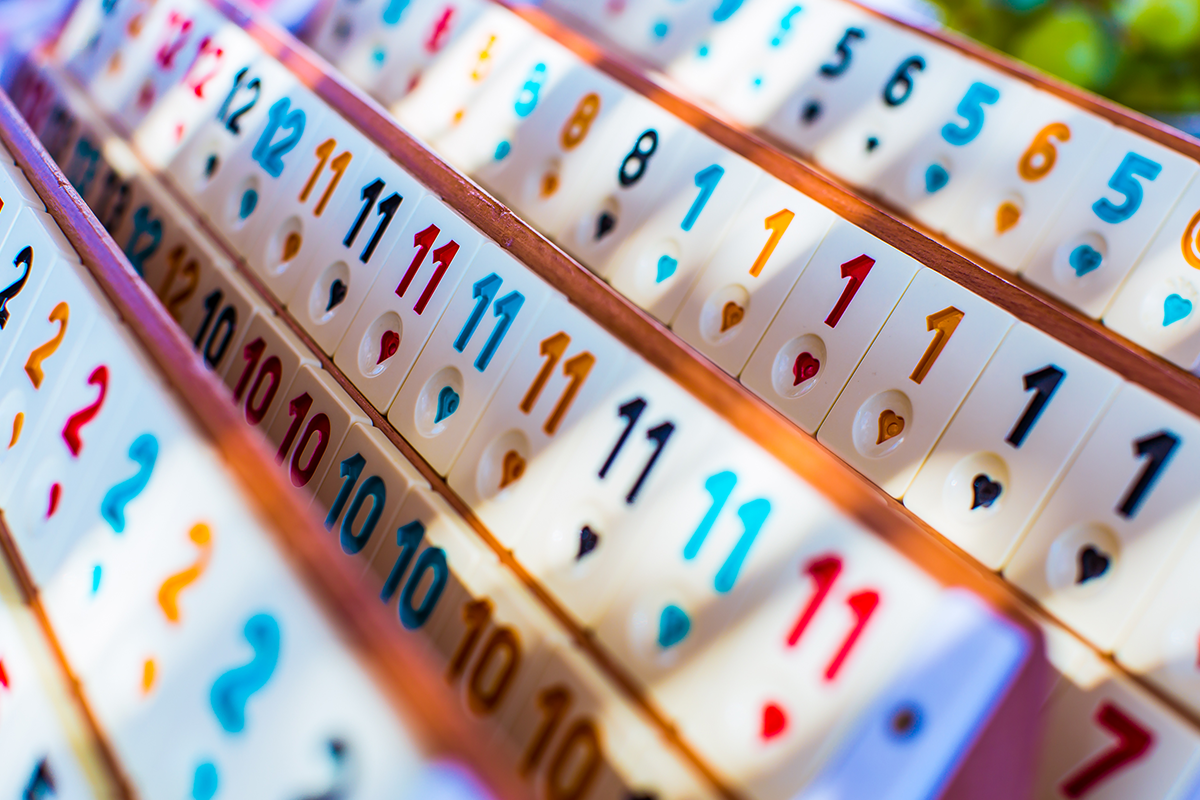My family is Jewish, which is to say, loud. Zoom’s best technology buckles under the amount of talking over one another we do. We’ve made attempts to adapt to pandemic life: dropping off flowers and toilet paper at each other’s houses to celebrate Shabbat, staring at my grandfather’s knees through a virtual seder. But in place of the traditions translated and lost this year, a new one has appeared: Rummikub.
My mother and I have been playing Rummikub with my grandparents, Bubby and Pop, since the pandemic began. Each week we clear their kitchen table of place mats and pillboxes and begin what has become a ritual.
Rummikub involves arranging numbers into sets of runs and patterns. Each player competes to be the first to use all of their tiles. I once read in the rulebook that the player who does this first is supposed to call out “Rummikub!” But my family, professionals, prefers the “Shark Tank”-coined “I’m out.” The rulebook also doesn’t mention that Pop always gets to go first or that your turn is over when Bubby’s had enough.
While we play, my family’s usual rush of sarcastic chatter is absent. The game is a strategic, contemplative one. Players often spend minutes at a time considering their moves, while the others wait and scheme in silence. Bubby waves her fingers while she outlines a move in her mind. Pop gives me a grumble and a wink when I win. We say very little, save for the occasional joke or dig.
“Well, you ruined my next move. I hope you’re happy,” I once said to my grandfather.
“That’s my function. To… ” He grumbled the rest of the sentence.
“What’s your function?” I asked.
“To kill everyone,” Pop said.
“Oh, sure,” I laughed. “Mom, did you hear that? Pop’s gonna kill us.”
My mother didn’t look up from her tiles. “That’s nice,” she said.
Along with blue eyes, gallows humor runs in my family. On one visit to my grandparents’ house, I asked Bubby about a cactus slumped like a question mark on her windowsill.
“What’s happening there?”
“I’m done with that,” she said. “It’s lived long enough.”
“She says that about me all the time,” Pop added.
I’ve always known that Rummikub was Jewish the way Lenny Bruce calls things Jewish, the way Robin Williams was Jewish (even though he was, in fact, not). But I learned recently that Rummikub is, in its origins and its history, a truly Jewish game.
Rummikub was invented by Ephraim Hertzano, a Romanian Jew who conceived of it while living under Romania’s communist, totalitarian regime in the 1940s. At the time, card playing was outlawed in Romania, viewed as a form of gambling. A functional loophole was playing with tiles instead. Hertzano, who began his career selling toothbrushes, packed his idea for the game with him when he immigrated to Israel in the 1950s.
There, what began as an anti-fascist loophole took physical form. Hertzano painted the tiles by hand in his backyard in Bat Yam. His vision was for a game that could be played anywhere and by anyone, a game that would transcend the barriers of language, religion and age. For Hertzano, Rummikub could bring anyone together.
In my grandparents’ kitchen, I have learned that to be true. My Bubby and Pop are aging, and the hour I spend around the table with them is one for which I feel intensely grateful. In between turns, I listen to the ticking of the kitchen clock and watch woodpeckers dash through the branches behind my grandparents’ house. I sip Diet Coke and eat peanut butter pretzels, allowing my eyes to linger on the family photos, the ceramic bird statue, the handwritten address book. These moments, practically padded in cotton, are precious.
I was playing Rummikub when the television announced that in the United States, 100,000 people had lost their lives to COVID-19. I was playing Rummikub when rioters stormed the Capitol.
“Is this a literal coup?” a friend of mine texted me. I turned my phone over in my lap.
“Like, a coup coup?” I asked. Then added, “Should we be doing something?”
“What is there to do?” my friend responded.
What is there to do? The message encapsulated so much of the pain and powerlessness that has colored the past year. With texts pouring in about the events in Washington, the silence seemed both more necessary and precarious than ever.
At the hour’s end I would put on my coat and walk into the cold. I would drive home and obsess over the news. I’d split my attention between CNN and Twitter while fielding panicked texts from friends. I’d wrestle with the devastation, indignation and resignation I felt.
But in that moment, at my grandparents’ kitchen table, there was quiet. There was nothing to do but play.



